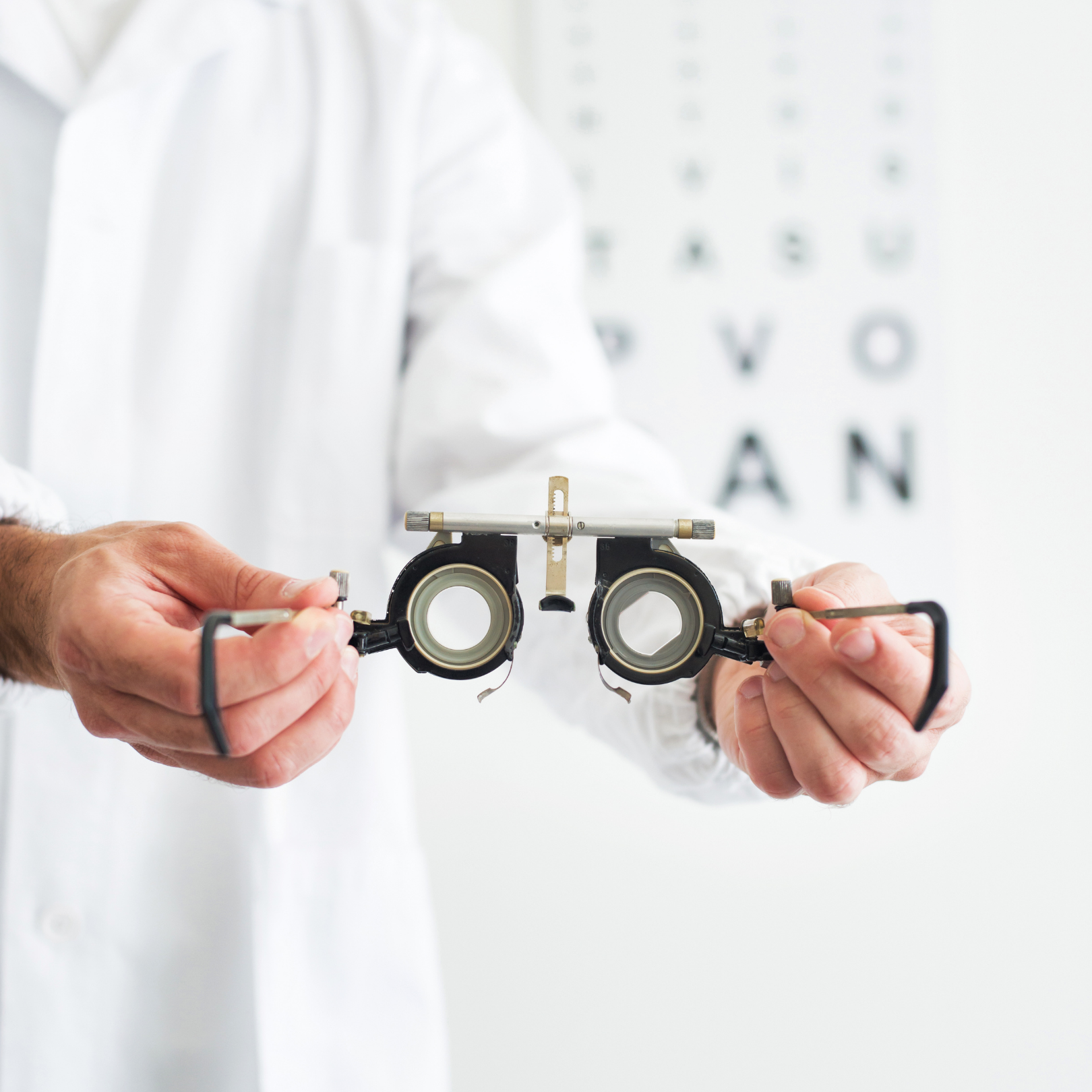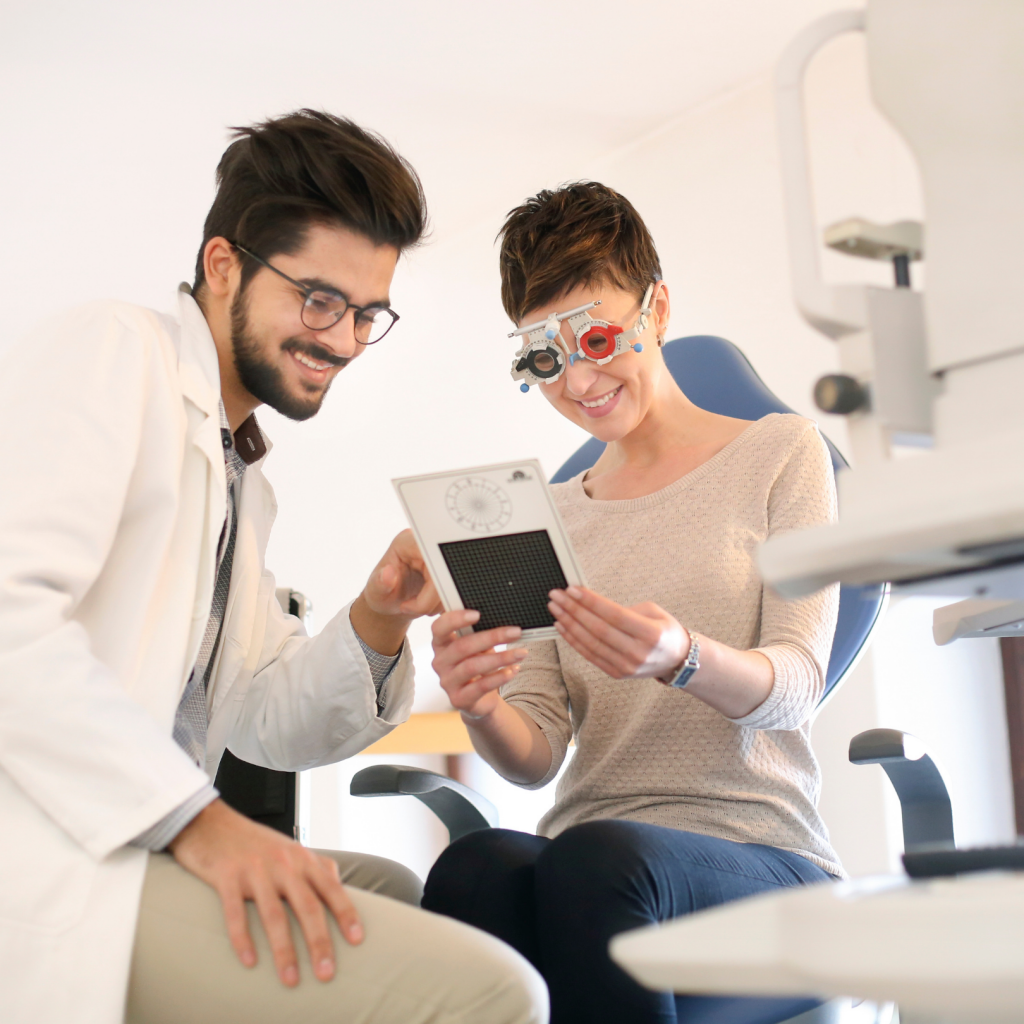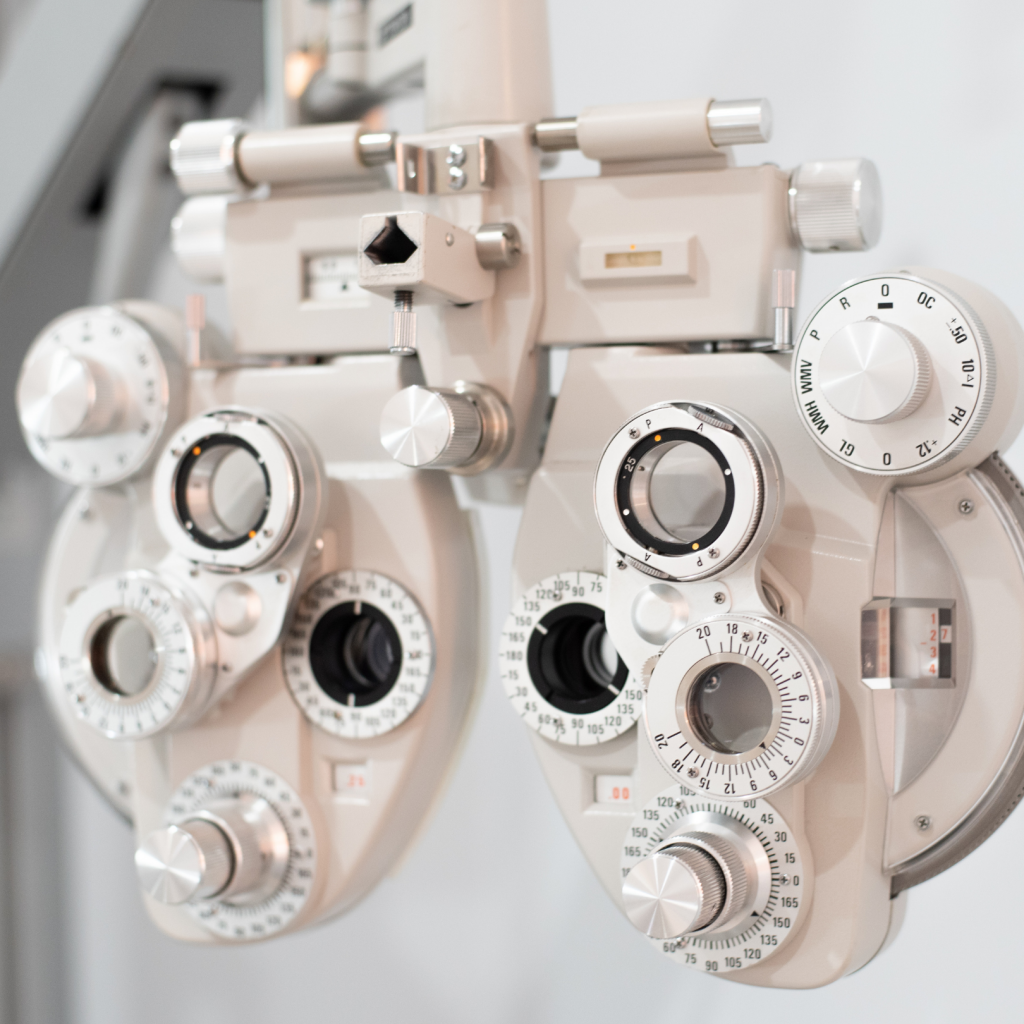Comprehensive Eye Tests
At Eye Philosophy, we conduct Comprehensive Eye Tests to help you see more clearly.
We believe that prevention is better than cure, so you can rest-assured that we will do our best to thoroughly assess your eyes to detect any problems early. Come and experience an Eye Test at Eye Philosophy to see why so many people entrust their vision and eye health to us.
The Eye Philosophy Difference
During a Comprehensive Eye Test at Eye Philosophy, you’ll notice that we spend extra time and care to assess your eyes.
We are unique from other optometry practices because we spend the time to guide you through the potential confusion of an eye test. In addition to that, we provide you with personalised care and information about your eye health. An eye exam with us feels more personal and importantly, we actually listen to your individual needs.
Our team of professional optometrists understand that eye tests can be confusing at times, especially if you’e never had one before. There are many factors that can cause your eyes to blur during an eye test, such as intense concentration or dry eyes. With patience and understanding, our optometrists work with you to guide you through the eye test to make sure you get the results needed for us to recommend the right solution for you.

We tailor eye care to your unique needs and preferences
Our optometrists have decades of experience
We treat all patients with respect, friendliness and professionalism
We spend time to explain and educate all our patients
Our patients love us. Just check out our 5-star Google Reviews
We have the latest modern technology to accurately assess your vision and detect problems
How often should I get an Eye Test?
Maintaining strong and ongoing eye health can be achieved by attending regular eye tests. We generally recommend eye tests at least every two years. For those aged 40+ years, we recommend once a year.
Early detection of changes to your eyes is crucial. Some diseases, such as glaucoma, show no symptoms and the only way to detect these diseases is through a Comprehensive Eye Test. The risk of developing eye diseases increases as we age, particularly for those aged 40+ years. That’s why we recommend Comprehensive Eye Test at least once a year so that we can assess the risk factors for developing eye diseases.
A Comprehensive Eye Test can help detect and manage:
Short-sightedness (myopia or near-sightedness) is difficulty focusing on objects that are in the distance.
Long-sightedness (hyperopia) is difficulty focusing on objects that are close
Blurred or distorted vision at all distances
Red, itchy, watery and gritty eyes.
Dry Eyes are a common condition that occurs when tears aren’t able to provide adequate moisture.
Macular Degeneration is damage to the nerves in your eyes, and causes loss of vision in the centre of your field of view. Age-related macular degeneration is a slowly-progressing eye disease which, according to Australian Institute of Health and Welfare statistics accounts for 50% of legal blindness in Australia. An eye test can save your sight. If you are an older Australian, we encourage you to seek help and do not delay in getting a potentially sight-saving eye test.
Cataracts are clouding of the lens in the eye that affects vision. Cataracts are very common in older people
Glaucoma occurs when the nerve connecting the eye to the brain is damaged, usually due to high eye pressure. This causes vision loss.
An emergency where the back layer of the eye (retina) separates from the layer of blood vessels.

Your child’s eyes are special. Being able to see clearly is therefore incredibly important in your child’s overall development. We take your child’s eyesight seriously.

Visual Field Tests
Visual Field Tests evaluate how well the periphery of your vision is functioning; this is different to testing your central vision using standard letter chart.

Ortho K Assessments
Orthokeratology is a non-surgical treatment that uses specially designed contact lenses to help address myopia, astigmatism and other refractive errors.
Book using one of the buttons below and see a bulk billing optometrist in our Williamstown or Doncaster office today!

